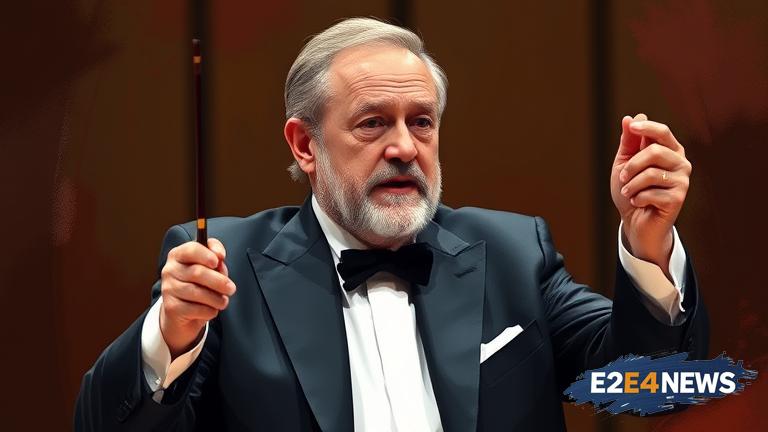Valery Gergiev, a prominent Russian conductor, has been scheduled to conduct a series of performances, despite facing criticism for his close relationship with Russian President Vladimir Putin. Gergiev has been a long-time supporter of Putin and has conducted at numerous high-profile events, including the opening ceremony of the 2014 Winter Olympics in Sochi. However, his association with Putin has led to controversy, particularly in light of Russia’s actions in Ukraine and other geopolitical tensions. Many have called for Gergiev to denounce Putin’s actions, but he has thus far refused to do so. As a result, some have boycotted his performances, while others have protested outside his concerts. Despite the backlash, Gergiev remains a highly respected figure in the classical music world, known for his interpretations of Russian composers such as Tchaikovsky and Shostakovich. His upcoming performances are expected to feature a range of classical works, including symphonies and operas. Gergiev has conducted many of the world’s top orchestras, including the London Symphony Orchestra and the New York Philharmonic. However, his ties to Putin have led to him being blacklisted by some organizations, including the Metropolitan Opera in New York. The controversy surrounding Gergiev has sparked a wider debate about the role of artists in politics and the ethics of collaborating with authoritarian leaders. Some have argued that artists should use their platforms to speak out against injustice, while others believe that they should remain neutral and focus on their craft. Gergiev’s situation has also highlighted the complexities of cultural diplomacy, where artists and cultural figures can be seen as representatives of their countries and governments. As the classical music world continues to grapple with these issues, Gergiev’s performances are likely to remain a subject of controversy and debate. The conductor’s upcoming schedule includes performances in several countries, including the United States, Europe, and Asia. While some have expressed outrage over his appearances, others have defended his right to perform and have praised his artistic contributions. Ultimately, the controversy surrounding Gergiev serves as a reminder of the complex and often fraught relationship between art and politics. The situation has also raised questions about the responsibility of artists to speak out against injustice and the impact of their actions on their audiences and the wider world. As the debate continues, Gergiev’s performances are likely to remain a focal point for discussion and protest. The conductor’s legacy and reputation will likely be shaped by his response to the controversy and his willingness to engage with the ethical and moral implications of his actions. In the meantime, his upcoming performances will be closely watched by audiences and critics alike, who will be eager to see how he navigates the complex and sensitive issues surrounding his ties to Putin.
